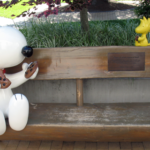Some things in my small-town church are predictable. It happens almost every week: A parent or grandparent comes to me expressing sincere concern over their grown kid’s or grandkid’s lack of interest in the faith. Often, they are confused. They say things like, “We did everything we could to raise her right.” Some even fear for their loved one’s eternal destiny.
 Jonathan DavisThe $10,000 question for many churches these days is how to reach young people, particularly Millennials—Americans born between 1980 and 2000. Can we reach them with a fresh worship experience? What if our church can’t afford to hire a rock star youth/young adult minister? (As if one really exists.) How can we build a strong young-adult program if we have no young adults? My answer to these questions is straightforward …
Jonathan DavisThe $10,000 question for many churches these days is how to reach young people, particularly Millennials—Americans born between 1980 and 2000. Can we reach them with a fresh worship experience? What if our church can’t afford to hire a rock star youth/young adult minister? (As if one really exists.) How can we build a strong young-adult program if we have no young adults? My answer to these questions is straightforward …
Stop trying so hard.
In spite of numerous challenges in reaching young adults, churches like the one where I am pastor may be surprisingly well equipped to reach Millennials. The answer may lie in deeply embedded values existing in both small-town and Millennial culture.
Reaching Millenials
Numerous studies focusing on Millennials routinely show a common set of shared values. These values are named in various ways, depending on who does the reporting. The top values Millennials share consistently are (1) community, ( 2) service and (3) authenticity.
In small towns, a strong desire for community already exists. Part of the mystique of small-town America is the idea that everyone knows your name. The makeup of small towns requires people to live in community in order to meet social, economic and spiritual needs.
Small-town churches, like Millennials, value service, like helping with the volunteer fire department, tutoring kids in local schools, sponsoring a communitywide Easter egg hunt, or building a float for the town’s Christmas parade. City churches also do these things, but the difference in a small town is the deep value service holds in rural culture. Service is important in a small town because community is everything.
 Finally, authenticity. Have you ever met a farmer who doesn’t “tell it like it is”? Authenticity and trustworthiness are valued in rural America, perhaps because word of dishonesty travels quickly in a small town. Authenticity also is important because reputation may be some of the best social and moral capital a family possesses.
Finally, authenticity. Have you ever met a farmer who doesn’t “tell it like it is”? Authenticity and trustworthiness are valued in rural America, perhaps because word of dishonesty travels quickly in a small town. Authenticity also is important because reputation may be some of the best social and moral capital a family possesses.
Sign up for our weekly edition and get all our headlines in your inbox on Thursdays
People can live in suburbia for years without knowing their neighbors. In a small town, everyone knows you and your family, for better or for worse. Some people consider small-town life stifling. For others, it brings a sense of closeness and belonging that cannot be realized elsewhere.
Community values
Community, service and authenticity are values small-town churches share with Millennials. Instead of dreaming up some magic-bullet program to reach younger generations, we should find ways to capitalize on these commonly held values.
Again, maybe we should stop trying so hard.
Everywhere you turn, you see or hear a news story about Millennials—how we are tech-savvy, how we are underemployed, how we have different values from other generations, and how we are leaving the church in droves.
As a Millennial, I take issue with much of what other people seem to observe about my generation. Many assume we are a lost generation, so enamored with the ease of moral relativism that we have turned our backs on the church. My research shows many Millennials have fled churches not because of moral relativism, but because churches often fail to create community, outlets for service and authentic connection.
The truth is some of the most exciting laboratories for reaching new generations may be small-town churches. The Hartford Institute for Religion Research notes the median church size in the United States is 75 members. Fifty-nine percent of U.S. churches have fewer than 100 worshippers on Sundays. This may be cause for celebration rather than dismay.
Being true to ourselves
By building a ministry to young adults through shared values and not imported programs, we can be true to ourselves—which only brings deeper community, more intergenerational service opportunities and greater authenticity.
This means small-town churches can breathe a deep sigh of relief, and so can the concerned parents and grandparents who visit my office. Don’t get me wrong—there is a time and a place for programs. But perhaps we need to trust ourselves a little more, trust God a little more …
And stop trying so hard.
Jonathan Davis is pastor of Urbanna Baptist Church, in Urbanna, Va. He is a doctor of ministry candidate at Logdson Seminary, where his research focuses on equipping small-town churches for 21st century ministry. He is the founder of the Small Town Churches Network, which is dedicated to sharing research, ideas and tools to help small-town churches. Follow him on Twitter @jonathandavis_.














We seek to connect God’s story and God’s people around the world. To learn more about God’s story, click here.
Send comments and feedback to Eric Black, our editor. For comments to be published, please specify “letter to the editor.” Maximum length for publication is 300 words.